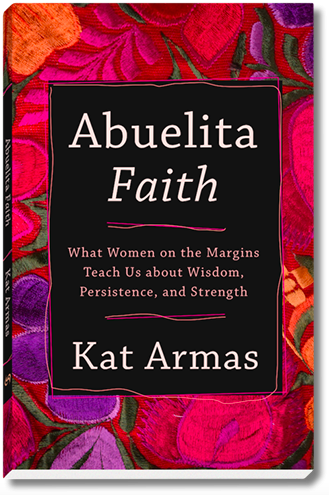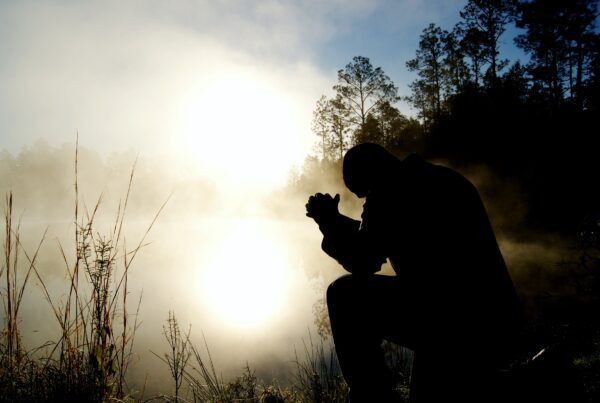Welcome to our first CJ blog series “Rooted: Elders, Ancestors, and Collective Memory”. As BIPOC communities, our faith has been deeply formed by the experiences of our people. Our communities have developed ways of knowing and understanding God through suffering, lament, joy, and hope. Our stories, narratives, and faith practices developed over generations are rooted in context, cultural values, and the struggle for justice. Let’s learn from one another and develop a collective memory that leads to a prophetic imagination.
Welcome our first guest contributor, Kat Armas.
As a daughter of immigrants who was raised in a city of immigrants, I always had a deep connection to my isla, my island, Cuba. However, before this time, my antepasadas—the women whose shoulders I now stand on, whose experiences live inside of my body, and whose sacrifices paved the way for my present reality—had never been a part of the theological narrative in any “formal” sense.
When beginning my research, I didn’t know how far the rabbit trail of digging into the history of mi gente, my people, would take me. While I knew our past was painful, I was naive and eager to take on the task of learning more about it. Back at home, we didn’t talk too much about our history. Sure, we were—are—proud and unapologetically Cuban, but because the details of my family’s past are tender and complicated, they are oftentimes uncomfortable to talk about. There was so much I wanted to learn, however, so I looked forward to understanding the way Christianity intersects with the country that birthed my abuelita and my mother—the two strong and courageous women who raised me.
The first book I picked up was Miguel De La Torre’s The Quest for the Cuban Christ. I left the library that day looking forward to reading about Jesus and my foremothers and forefathers. But needless to say, my excitement quickly dissipated when I read the first page: “Women were raped. Children were disemboweled. Men fell prey to the invaders’ swords.”
I immediately knew this journey would be dark, heavy, and difficult. And the worst part? This was only the beginning of the written history of my people. This information would redirect the course of my ministry and how I understood theology, who I am, and the ways the two intersect.
The story of mi gente involves the story of the native Cubans—the Taínos—being invaded and tortured by Spain. Worse, it tells how Spain would use their imported “Christ” to justify the greed for gold and glory.5 Spain would exploit and oppress the so-called heathens they encountered in the name of this imported “Christ,” who would support the ethnocide and genocide of the Taínos as well as the forced transportation of hundreds of thousands of enslaved African people to the island. And as we know, ethnocide, genocide, slavery, and forced relocation aren’t isolated to Cuban history but describe the history of native people across the globe.
Many people generally know that the Jesus they’ve been singing about and singing to—and the beloved symbol of his cross—has historically been used as a weapon of hate, pain, and oppression, but something changes when a person first realizes how deep the colonial wounds truly run. This shift is colossal. Disorienting. What do you do with this information? Many throw in the towel and abandon the whole thing—understandably. The feelings of betrayal can be overwhelming. Others go through seasons of lament, grief, anger. This process has often been called “deconstruction” or a “decolonizing” of the faith—the unlinking of ourselves from a god we thought we knew, from a colonial Christianity, from an imported and imperial Christ. While uncomfortable, the journey from one place of knowledge, one way of being and knowing, to another way of understanding and seeing the world is crucial and even sacred.
Gloria Anzaldúa calls this space “nepantla.” Nepantla is the Náhuatl (an Indigenous group of people from Mexico and Central America) word for an in-between state, un espacio entre medio. The nepantla is the uncertain terrain that we cross when changing from one place to another. It is a space of constant tension where transformation and healing may be possible. Our journeys of decolonizing, of deconstruction and reconstruction are that of nepantla. They are sacred spaces of learning, growing, shifting, becoming.
My nepantla journey didn’t begin that day sitting on my bed with my tabs open and my ojeras bright purple. But that day was when I became aware that I was on it. In fact, thinking back, that day stands out as a turning point on this journey. I’m reminded of Rachel’s husband, Jacob, who built a sacred stone pillar in Luz, “to the God who answered me when I was in trouble and who has been with me wherever I’ve gone” (Gen. 35:3).
That day and the day in my hermeneutics class serve as stones of remembrance on my life’s altar—reminders that the divine has been with me wherever I’ve gone.
On that day I became curious to know more about the Christian European invaders—the representatives of Christ, who claimed allegiance to the “true” God of the Bible while ignoring the Bible’s basic call for justice. I became curious about the Christ they claimed too. I wondered, Can this Christ—the one who has infiltrated much of our theology and mission efforts—the Christ who is white, elite, and of European descent, be redeemed? Is this the Jesus who “saved” me?
Or could there be another Christ? The one that many of us have been in search of, the one of los humildes, the humble, as De La Torre calls them? My journey began to be shaped by the desire to learn about Jesus from the perspective of los humildes—the colonized, the marginalized, those who didn’t get to write the history and theology books. In many ways, they are the ones intimately acquainted with the Jesus of the Gospels—the bicultural, border-crossing, Brown Jesus, the one born in a stable, rejected in his hometown, tortured, broken, and battered. I knew that in order to understand this Jesus better, I would have to prioritize listening and centering the voices of los humildes.


Kat Armas is a Cuban-American from Miami, FL, and holds a BA in Psychology from Florida International University and a dual MDiv and MAT from Fuller Theological Seminary. Kat also works as a freelance writer and host of The Protagonistas podcast on the Chasing Justice Podcast Network. Her work centers the voices of women of color in church leadership and theology (you can check it out at www.katarmas.com). Outside of writing, podcasting and work, Kat enjoys memoirs, day trips down the California coast, vegan foods, and lounging with her husband and two kittens.
Content taken from Abuelita Faith by Kat Armas, ©2021. Used by permission of Baker Publishing www.bakerpublishinggroup.com.
The views and opinions expressed on the Chasing Justice Blog are those of the authors and do not necessarily reflect the official policy or position of Chasing Justice. Any content provided by our bloggers or authors are of their opinion and are not intended to malign any religion, ethnic group, club, organization, company, individual or anyone or anything.







